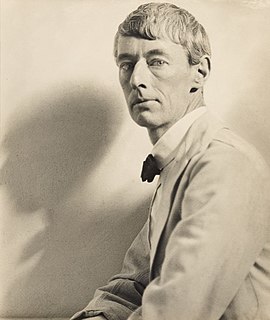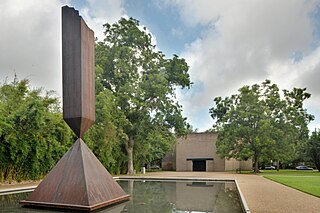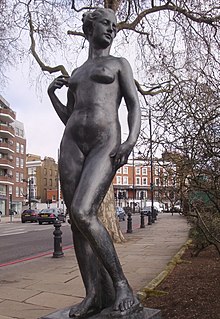Related Research Articles
Alexander Morrison National Park is a national park in Western Australia, located 207 kilometres (129 mi) north of Perth in the Shire of Coorow along the Green Head-Coorow Road. It was named for Alexander Morrison, the first Government Botanist of Western Australia.

Sixty-nine or 69, also known by its French name soixante-neuf (69), is a group of sex positions in which two people align themselves so that each person's mouth is near the other's genitals, each simultaneously performing oral sex on the other. The participants are thus mutually inverted like the numerals 6 and 9 in the number 69, hence the name. This position can involve any combination of sexes.

Norman Alfred William Lindsay was an Australian artist, etcher, sculptor, writer, art critic, novelist, cartoonist and amateur boxer. One of the most prolific and popular Australian artists of his generation, Lindsay attracted both acclaim and controversy for his works, many of which infused the Australian landscape with erotic pagan elements and were deemed by his critics to be "anti-Christian, anti-social and degenerate". A vocal nationalist, he became a regular artist for The Bulletin at the height of its cultural influence, and advanced staunchly anti-modernist views as a leading writer on Australian art. When friend and literary critic Bertram Stevens argued that children like to read about fairies rather than food, Lindsay wrote and illustrated The Magic Pudding (1918), now considered a classic work of Australian children's literature.

George Robert Lazenby is an Australian actor and former model. He was the second actor to portray fictional British secret agent James Bond in the Eon Productions film series, playing the character in On Her Majesty's Secret Service (1969). Having appeared in only one film, Lazenby's tenure as Bond is the shortest among the actors in the series.

Richard Serra is an American artist known for his large-scale sculptures made for site-specific landscape, urban, and architectural settings. Serra's sculptures are notable for their material quality and exploration of the relationship between the viewer, the work, and the site. Since the mid-1960s, Serra has worked to radicalize and extend the definition of sculpture beginning with his early experiments with rubber, neon, and lead, to his large-scale steel works.
Man of Steel may refer to:

Broken Obelisk is a sculpture designed by Barnett Newman between 1963 and 1967. Fabricated from three tons of Cor-Ten steel, which acquires a rust-colored patina, it is the largest and best known of his six sculptures.
Timothy Burstall AM was an English Australian film director, writer and producer, best known for hit Australian movie Alvin Purple (1973) and its sequel Alvin Rides Again.
Warner Bros.-Seven Arts, Inc. was an American entertainment company active from 1967 until 1969.

Nancy Graves was an American sculptor, painter, printmaker, and sometime-filmmaker known for her focus on natural phenomena like camels or maps of the Moon. Her works are included in many public collections, including those of the National Gallery of Art, the Brooklyn Museum of Art, the Smithsonian American Art Museum, the National Gallery of Australia (Canberra), the Des Moines Art Center, Walker Art Center (Minneapolis), and the Museum of Fine Arts. When Graves was just 29, she was given a solo exhibition at the Whitney Museum of American Art. At the time she was the youngest artist, and fifth woman to achieve this honor.

Ube is a city located in Yamaguchi Prefecture, Japan on the Seto Inland Sea. As of October 2016, the city has an estimated population of 168,398 and a population density of 590 persons per km2. The total area is 287.69 square kilometres.

Kangaroos, Wallabies and other Macropodidae have become emblems and symbols of Australia, as well as appearing in popular culture both internationally and within Australia itself.
"One" is a song by American singer-songwriter Harry Nilsson from his 1968 album Aerial Ballet. It is known for its opening line "One is the loneliest number that you'll ever do". Nilsson wrote the song after calling someone and getting a busy signal. He stayed on the line listening to the "beep, beep, beep, beep..." tone, writing the song. The busy signal became the opening notes.

Claes Oldenburg was a Swedish-born American sculptor, best known for his public art installations typically featuring large replicas of everyday objects. Another theme in his work is soft sculpture versions of everyday objects. Many of his works were made in collaboration with his wife, Coosje van Bruggen, who died in 2009; they had been married for 32 years. Oldenburg lived and worked in New York City.

Regimental Square is a war memorial in the Wynyard area in the city centre of Sydney, Australia. An upgrade of the area was expected to be completed by mid-2016.

Thomas Lenton Parr AM was an Australian sculptor and teacher.

Two-Piece Reclining Figure No. 9 is a bronze sculpture of 1967 by the English artist Henry Moore, which exists in several versions and is catalogued as LH 576.
Inman Hunter was a British-born film editor who worked in both Australia and England from 1938 to 1969.

Australian Seal is an outdoor sculpture of 1968–69 by Thomas Bass, installed outside the Embassy of Australia, Washington, D.C., in the United States. The bronze sculpture measures approximately 8 feet (2.4 m) x 5 feet (1.5 m) x 2 feet (0.61 m) and is set on a flagstone base. It depicts a kangaroo, emu, and the Australian shield, which includes images of St. George's Cross, Queen Victoria's crown, a Maltese Cross, magpie, black swan, and lions. Above the shield is a seven-pointed star.

Atalanta is a statue by the English sculptor Francis Derwent Wood. It shows a naked woman standing in a contrapposto position, glancing to her left, with her left hand by her side and right hand raised to her shoulder. The subject is Atalanta, a virgin huntress from Greek mythology; she may be preparing for the foot race she used as an obstacle to prevent suitors securing a marriage.
References
- ↑ "Film unit productions to be screened". The Canberra Times . 25 November 1969. p. 14. Retrieved 4 June 2015– via National Library of Australia.